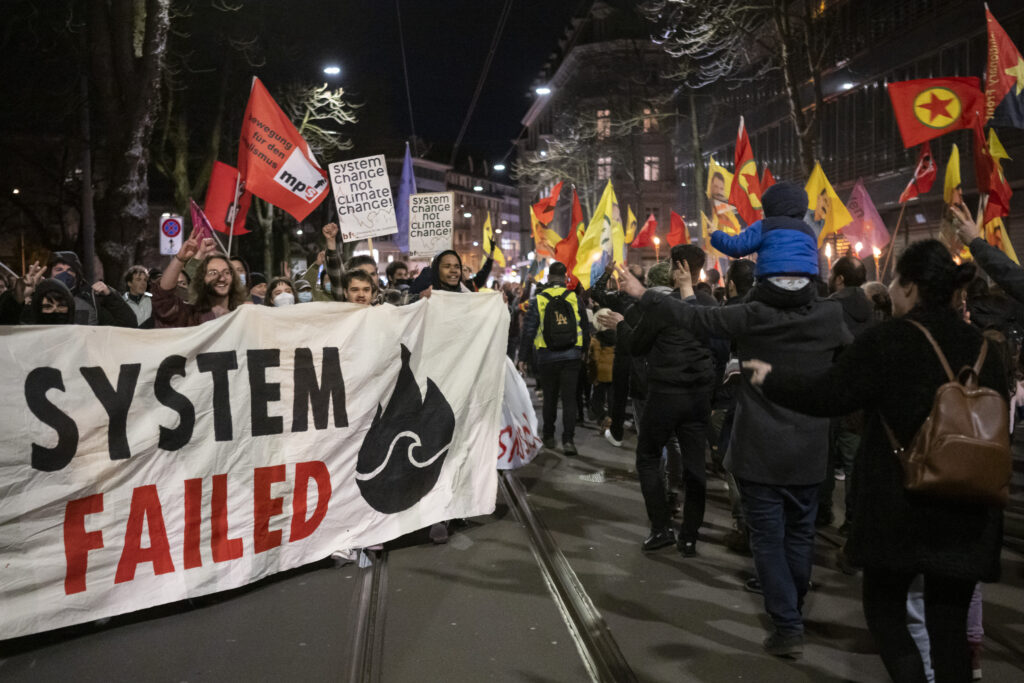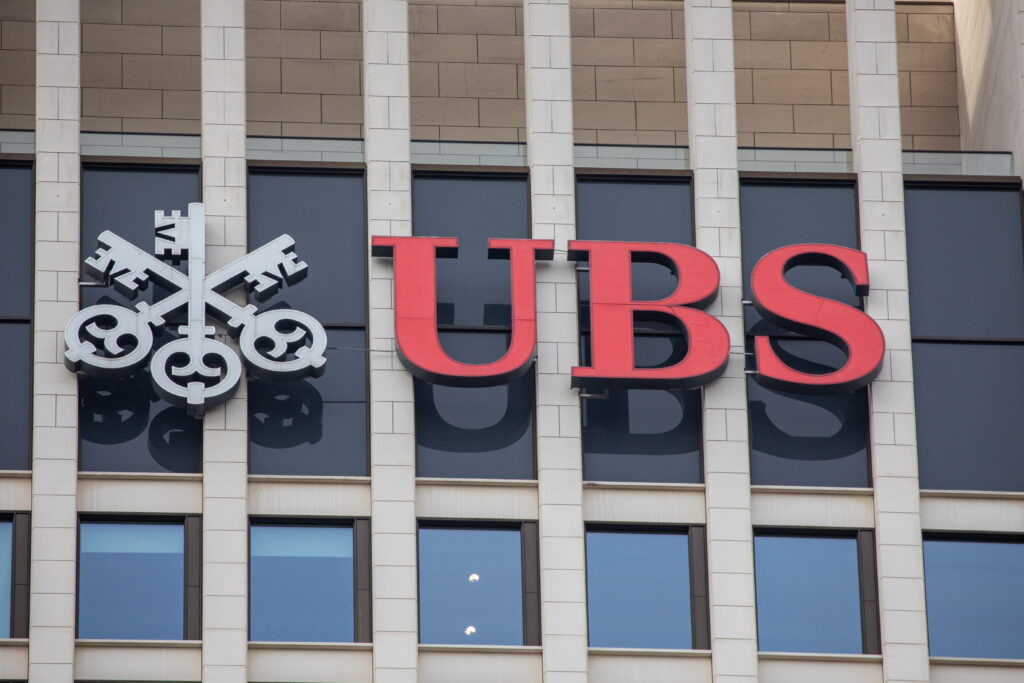Wed, Mar 22nd 2023

In the days since the Swiss government announced that UBS would buy Credit Suisse for CHF3 billion with a CHF9 billion state-backed guarantee, financial experts and Swiss taxpayers are trying to make sense of how we got here.
Did Credit Suisse simply make too many mistakes? Or was it a series of problems that were complicated in the last year amidst war, inflation and the collapse of Silicon Valley Bank?

While UBS’s strategy in the early 2000s to expand in the U.S. market led to record profits in 2005 and 2006, UBS was the “most exposed” foreign bank on the U.S. real estate funds and derivatives market when the 2008 recession hit.
After the collapse of Lehman Brothers nearly froze the market for interbank loans – the world’s largest asset manager, UBS, was left without liquidity. The collapse also left the bank with a mountain of non-liquid securities, as it had already wiped out $40 billion in assets during the subprime crisis.
On October 16, 2008, the Swiss government and the Swiss National Bank (SNB) announced that it would bail out UBS with CHF6 billion from the state and CHF50 billion from SNB. This would allow UBS to transfer non-liquid securities into a “special stability fund” set up by the SNB in the Cayman Islands. The bank would wait until the global economy got back on its feet to sell them back. UBS closed 2008 with a deficit of CHF20 billion – the largest deficit ever recorded by a Swiss company.
Over the next few years, the SNB was able to free itself from the non-liquid securities and even make a CHF5 billion profit off the investment. The Swiss government, too, earned CHF1.2 billion off its 12.5% interest rate on the UBS loan. That said, the Swiss government put new regulations into place following the crisis to ensure that a “too big to fail” scenario would not happen again.
It did.

Credit Suisse was able to avoid a bailout in 2008 having not as heavily invested in the U.S. market but may have failed to learn from its competitor’s missteps.
The bank dropped from a profit of CHF 2.7 billion in 2020 to a loss of CHF 1.65 billion in 2021, mostly due to bad investments in failed supply chain group Greensill and hedge fund group Archegos. In the 2021 collapse of the hedge fund, U.S. authorities have charged Archegos’ founder Bill Hwang and three colleagues with racketeering and fraud charges.
“In my opinion, all the trouble started with Greensill and Archegos,” said one investment banker in Zurich who spoke with The Swiss Times. “The bank couldn’t get back on its feet after 2021.”
In October of 2021, U.S. and U.K. authorities handed down a verdict that Credit Suisse must pay CHF439 million to resolve a Mozambican corruption scandal which included bribery and fraud charges. The same week, the Swiss Financial Market Supervisory Authority announced it had discovered “serious organization shortcomings” in its investigation into a corporate espionage case that began with a 2020 audit of the bank. According to the investigation, Credit Suisse spied on members of its board and former employees.
By 2022, bad headlines became synonymous with the bank and #DebitSuisse was trending on Twitter.
In March 2023, Credit Suisse’s biggest shareholder – U.S. investment firm Harris Associates – sold its entire stake in the bank. Days later, Silicon Valley Bank collapsed. It maimed Credit Suisse and its hefty investments in the U.S. tech industry.
“I believe they made their biggest mistake when the bank invested Swiss francs in California,” Karl Lieptag, a primary school teacher in Geneva, told The Swiss Times.
In the wake of the SVB collapse the Swiss government and SNB hastily put together a “shotgun merger” to rescue Credit Suisse – this time, using another bank to do the heavy lifting.
“The UBS takeover is effectively a bailout of Credit Suisse,” writes Stefan Haeberli in the local newspaper NZZ. He explains:
Fifteen years after the UBS rescue, the Swiss government and the SNB saved Credit Suisse shareholders from a total loss. The takeover by UBS could only take place thanks to billions in government guarantees and recourse to emergency decrees. Even if the Federal Council denies it, this was a state bail-out. Yet the federal government was never supposed to have to bail out a bank after 2008. Emergency plans should ensure that big banks can go under without too much economic disruption.
Stefan Haeberli, NZZ

Since Russia invaded Ukraine a year ago, the Swiss federal government has mirrored nearly all the EU-imposed sanctions on Russia – from freezing assets and bank accounts to cutting off Russian businesses and exports.
Swiss banks are required by law to report deposits of both sanctioned and non-sanctioned Russians who hold 100,000 CHF or more to the State Secretariat for Economic Affairs (SECO).
In February, Credit Suisse revealed that it has about CHF17.6 billion in frozen Russian assets – about 10 billion CHF more than the bank originally assumed. SECO reported late last year that the sanctions have affected about 7,500 business relationships and a total of CHF46.1 billion with connections to Russia. Additionally, Switzerland has seized 15 properties.
At UBS, which is twice the size of Credit Suisse, there are about CHF6.9 billion in frozen Russian assets. The share of Russian funds amounts to 0.3% of invested assets in Global Wealth Management, according to a UBS spokeswoman.
Meanwhile, more than one-third of all frozen Russian assets in Switzerland is being held by Credit Suisse.
“If there was not a war going on, I don’t think any of this would have happened,” said Elizabeth Childs, a university student in Geneva from the U.K. “War has complicated everything – the global economy, our sense of safety. Of course, banks are going to feel that.”
Stay tuned.
This article may be freely shared and re-printed, provided that it prominently links back to the original article.
